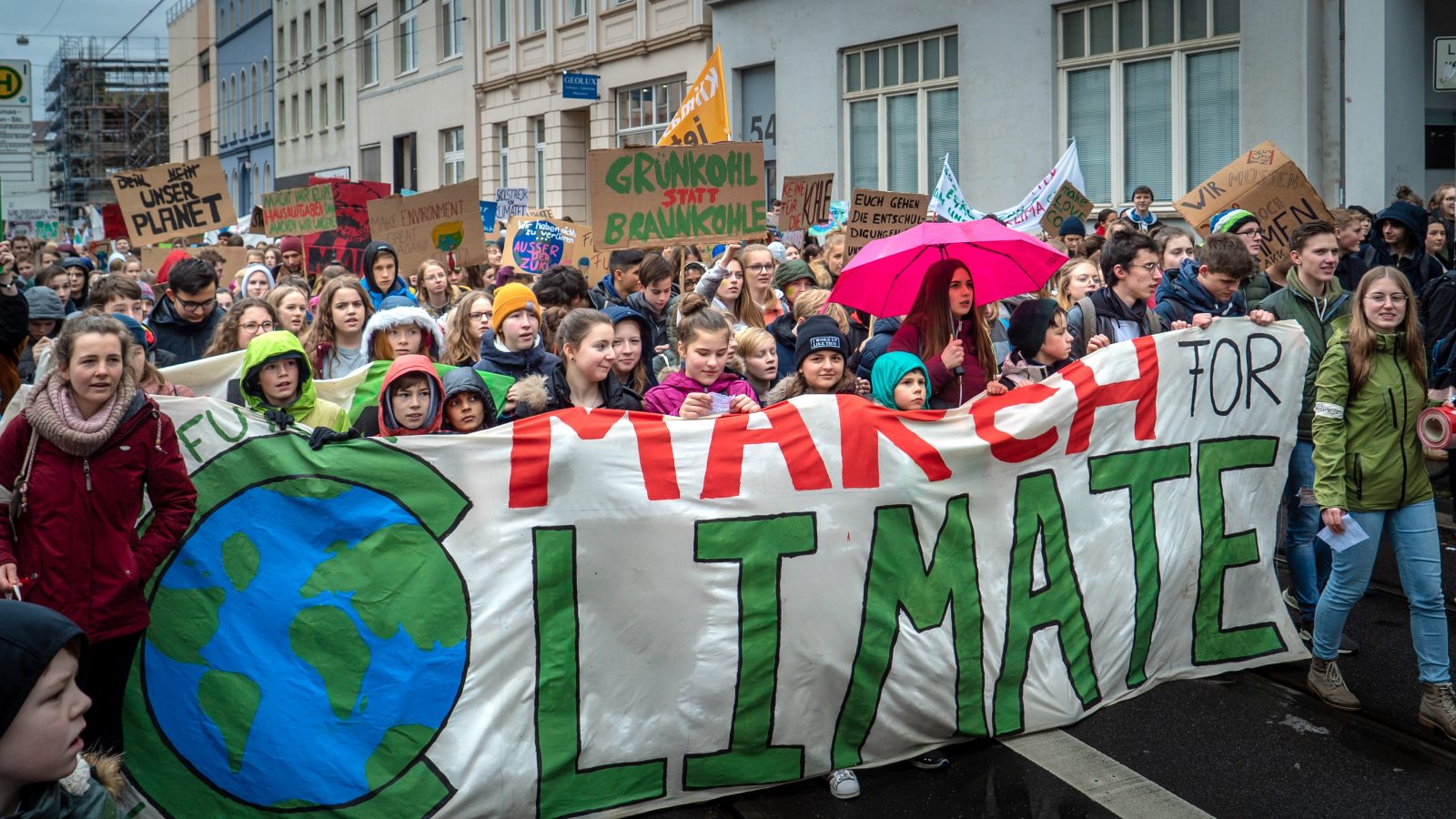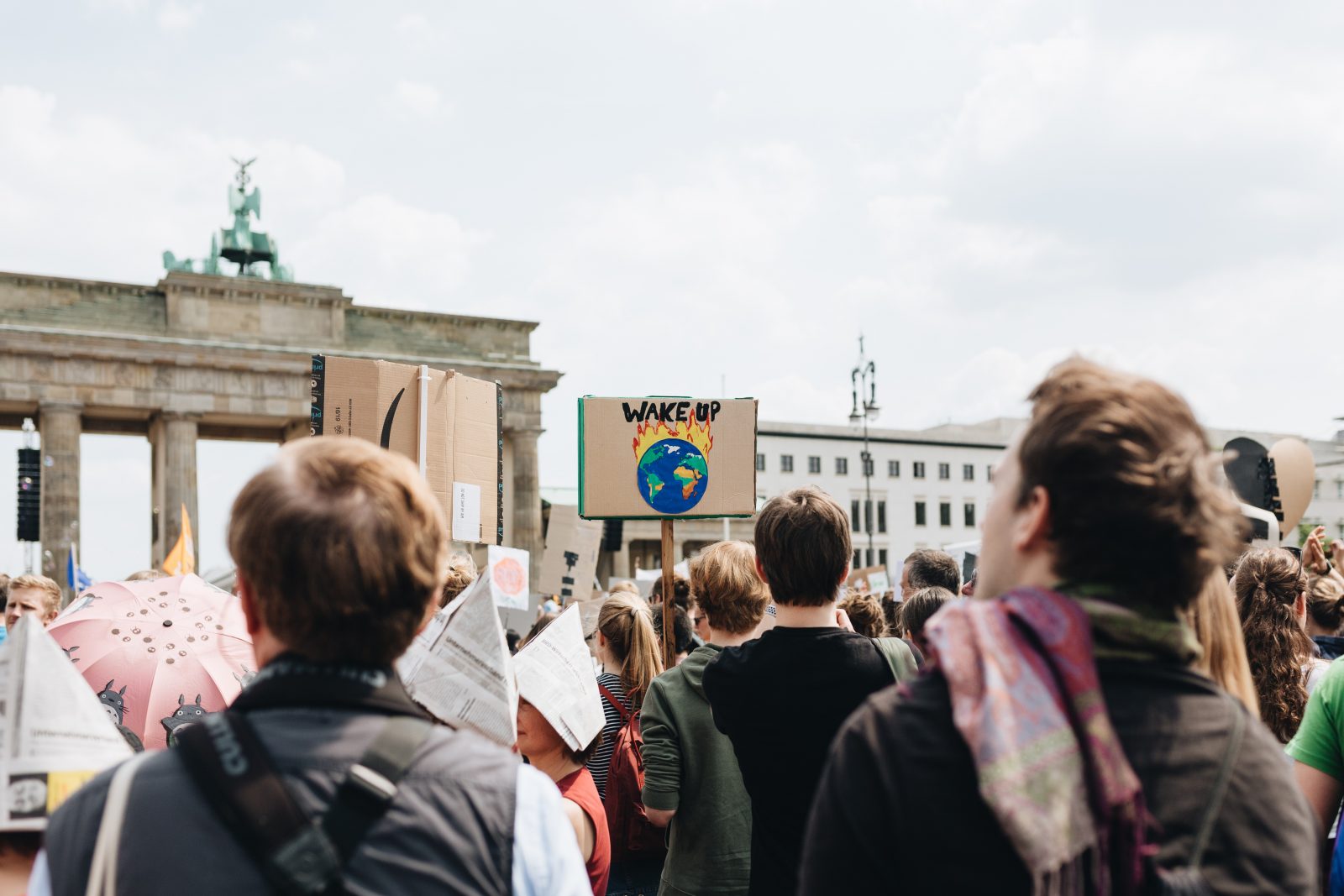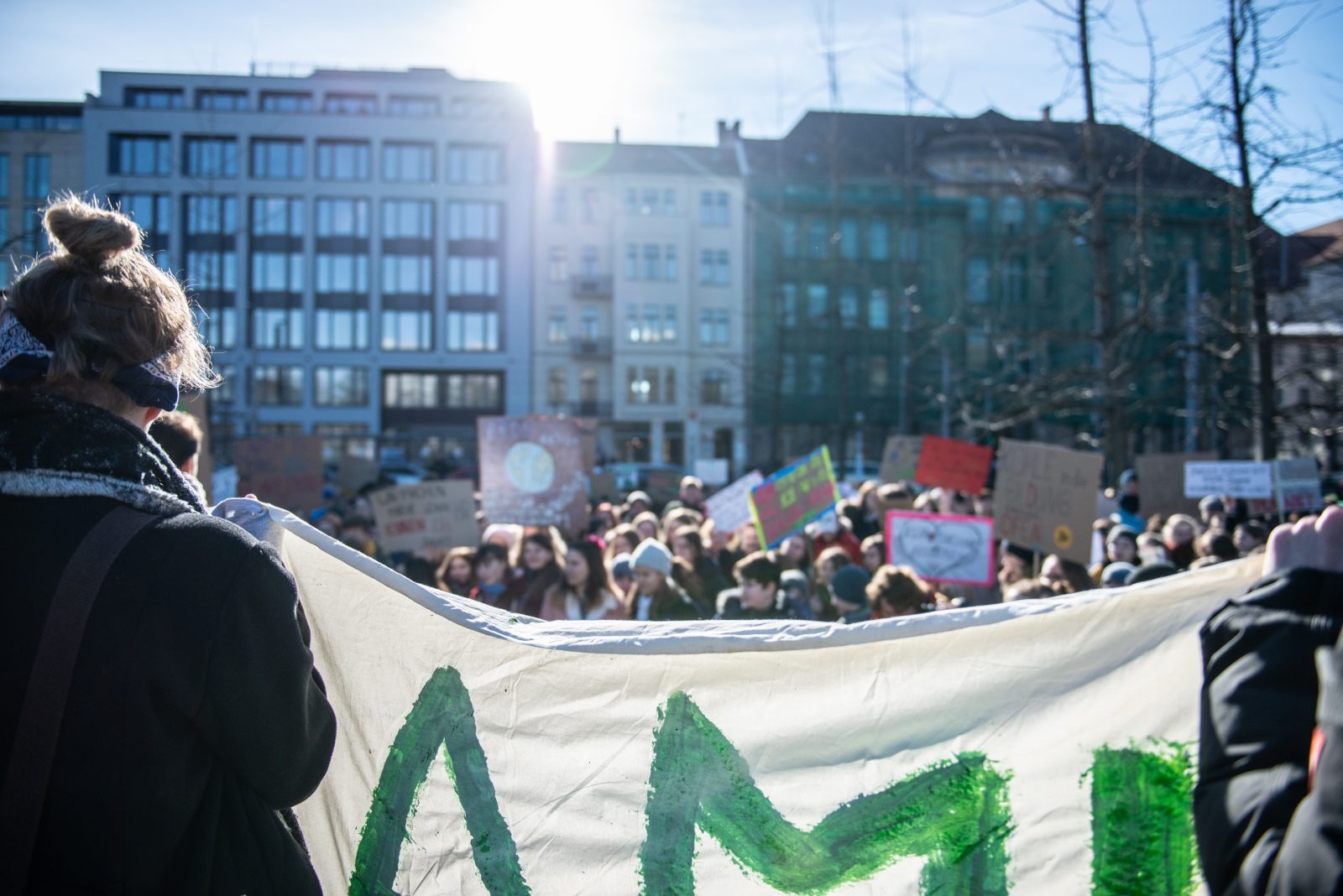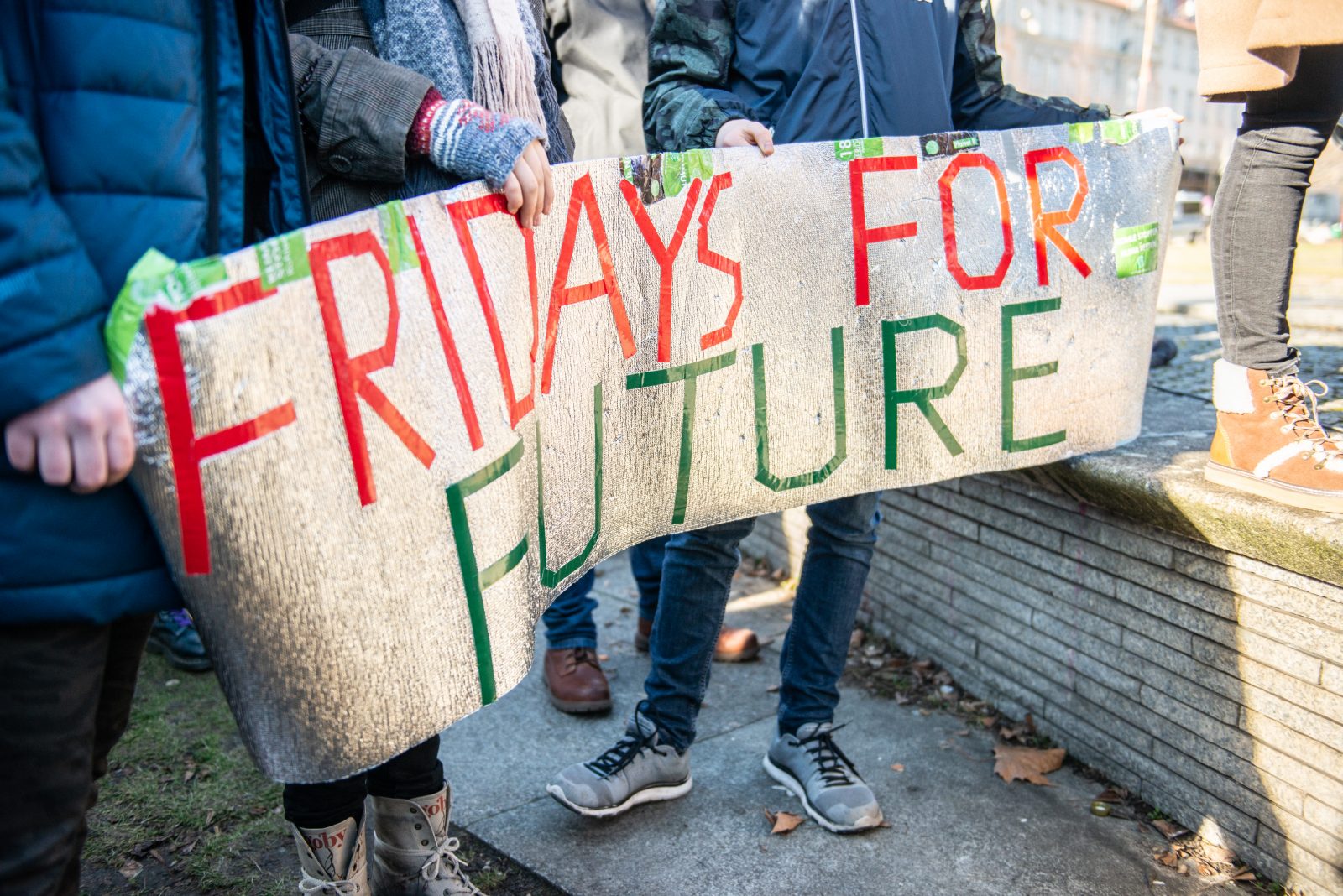As the grassroots battle to save the planet reaches a tipping point in Europe and beyond, Paul Sullivan profiles the key climate activist groups in Berlin…

Green politics have a fairly long history in Germany—but the climate crisis has started to bring them to the fore. The recent EU elections saw a ‘green surge’ in Germany and beyond, and various activism groups have not only been joining the fight but making national and global headlines.
Despite Germany being seen on the international stage as a generally eco-aware nation—especially in contrast to Trump’s America and the climate-denying politics of the AfD and the growing Far Right movement—and a supporter of climate-friendly protocols, the reality is somewhat less inspiring.
Despite ratifying the Paris Agreement back in 2016, the newly elected 2018 coalition government scrapped plans to meet some the original 2020 energy goals, and there has been a startling lack of innovative ideas from related industries. The German Coal Commission recently announced a phase-out of coal by 2038, which some organisations have pointed out would miss targets set by the Paris Agreement.
Hence activist movements like Ende Gelände, joined by newer groups like Extinction Rebellion (XR) and FridaysForFuture (FFF), have been committed to putting pressure on politicians and industries alike to declare a climate emergency, and to improve on current goals.
This year has seen a peak in their activities, with a notable increase in peaceful protests and the blocking of roads and bridges. Below is an overview of the main movements and their individual aims.
Ende Gelände

Ende Gelände describe themselves as ‘a broad alliance of people from the anti-nuclear and anti-coal movements, the Rhineland and Lausitz climate camps and the Hambacher Forest anti-coal campaign.’ Using the strategy of civil disobedience, their key aim is to force fossil fuel companies to put climate before profit—more specifically, to demand an immediate exit from coal as an essential step towards global climate justice.
“Ende Gelände is one of the biggest mass actions for climate justice in Europe,” says spokesperson Nike Mahlhaus. “Each year, we come together and go directly into the brown coal pit, right where the climate crisis is being produced, and stop the diggers with our bodies. Last year at the Hambacher Forest, we created a moment of collective disobedience with 50,000 people, all of us protecting the ancient forest from destruction for fossil fuels. And we are getting bigger and bigger.”
Their campaigns—such as the recent five-day mass action calling for the Rhineland mining area to be shut down—often draw thousands of international protesters from diverse walks of life from around the globe.
“Of course, the authorities are trying to stop us. The police are publicly telling lies about us, politicians are discrediting our peaceful and legitimate protest, and the RWE takes legal action against us. But you cannot evict a movement. We are unstoppable. We believe in climate justice, and we will continue to fight for it. Our direct actions against brown coal are just the beginning. We believe that the climate crisis cannot be solved within the system, so we call for system change, not climate change. We made a promise to RWE: we will not stop until the last digger rests. We will come again and again until our planet is not in danger anymore of being destroyed by greedy companies, corrupt politicians and an economic system that is based on growth.”
Future plans include an upcoming mass action in the Rhineland and Lausitz, as well as participation in the “by 2020 we rise up” movement.
Extinction Rebellion (XR)

Extinction Rebellion was founded in the summer of 2018 by a group of climate academics, and broke into the mainstream a few months later by taking over prominent sites in London such as Marble Arch, Oxford Circus, Waterloo Bridge and Parliament Square.
Now active in 35 countries around the world, the group’s modus operandi is also non-violent civil disobedience, with the aim that governments declare a “climate emergency,” and shift into crisis mode where “business as unusual” is suspended to make climate protection the priority.
More concretely, they want governments to commit to carbon neutrality by 2025 — instead of 2050 as the European Union and many national governments are aiming for.
Extinction Rebellion Germany first came together in December 2018, and already number several hundred members, with regular meetings, community events and training days. Recent protests include the blocking of the Oberbaumbrücke and the 11 June civil disobedience at the press office of the Government quarter.
“Regarding local challenges specifically, XR Berlin is working across a whole number of fronts such as outreach, recruitment, and on‑boarding, as well as media liaison and social media, training and actions,” says spokesperson Robbie Morrison. “There’s also a lot of work on public engagement and citizens assemblies.”
Fridays For Future

Fridays For Future was founded in August 2018, when Swedish schoolgirl Greta Thunberg began her solo protest for climate protection in front of the Stockholm Reichstag. Every Friday she demonstrated instead of going to school—a simple idea that has become a global movement. At the last count, more than 1,500 cities in more than 100 countries have been taking part in the Friday school strikes.
The first FFF protest in Berlin took place in January 2019, with students and schoolchildren hitting the streets every Friday since, with the aim of raising awareness for climate issues. Made even more famous in March thanks to FPD leader Christian Lindner dismissing the protests as “well-intentioned but naïve” and suggesting such decisions should be “left to the professionals”, more than 23,000 researchers and activists from German-speaking Europe gave scientific support to the movement, creating ScientistsForFuture, which now works in tandem with FridaysForFuture.
“We have been striking every Friday for half a year now, and will continue to do so until we see honest and radical change in politics to save our future,” says spokesperson Moritz Kalis. “Big highlights for us have been the Global Strike on May 15th, and Greta Thunberg’s visit to Berlin, with well over 20,000 people on the streets.”
[smbtoolbar]




